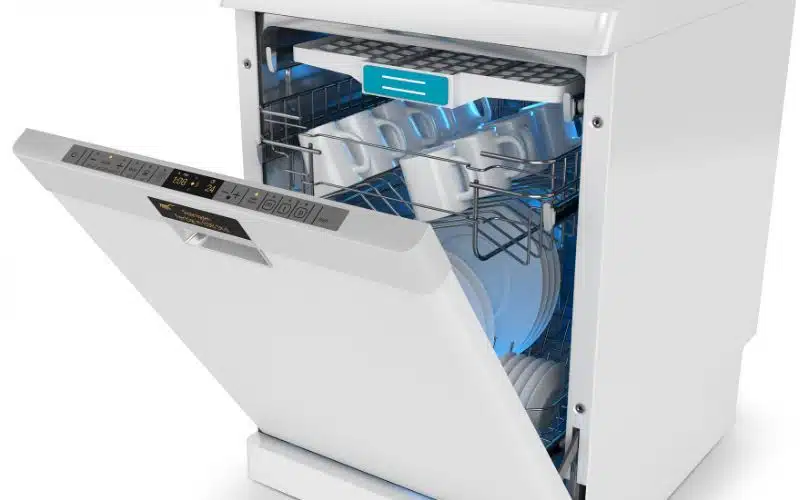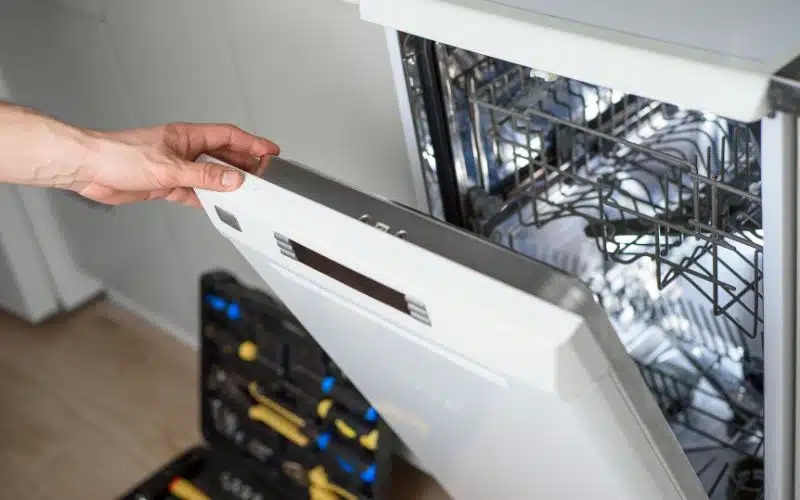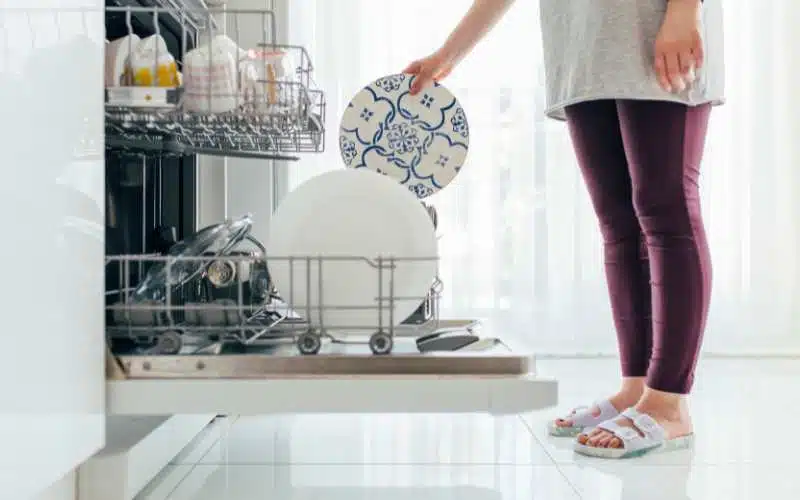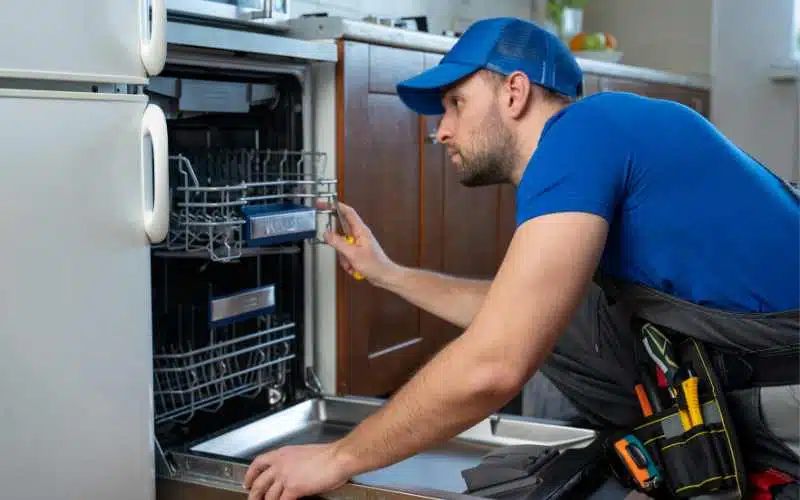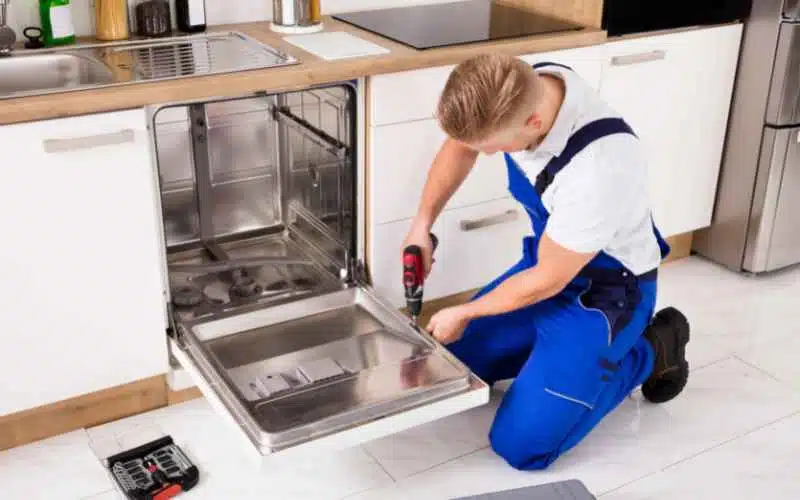Dishwashers help us clean dishes easily, but what about their power cords? Are they all the same for every dishwasher?
Let’s find out if you can use any cord with any dishwasher or if each one needs a special kind.
This article will help you understand all about dishwasher power cords. Let’s get started!
Key Takeaways
- Understanding Dishwasher Power Cords: Most dishwashers are designed to be hardwired directly into your home’s electrical system and typically do not come with power cords.
- Interchangeability and Safety: Dishwasher power cords are not universally interchangeable due to specific requirements like a 110-volt 3-pin plug receptacle. Always opt for high-quality, compatible cords to ensure safety and efficiency.
- Reusing Old Power Cords: You can reuse a power cord from an old dishwasher if it is in good condition and meets safety standards. However, careful inspection and testing are necessary.
- Hardwiring vs. Plugging In: Hardwiring a dishwasher ensures a neater installation but might be more expensive and requires professional installation. Plugging in with a power cord is generally less costly, easier for DIY, and allows quick disconnection for safety.
Do All Dishwashers Have Power Cords?
Contrary to what you might expect, dishwashers typically do not come with power cords.
This might surprise you, but there’s a good reason for it. Manufacturers design them to integrate directly into your home’s electrical system rather than plugging into a wall outlet.
Here’s what you need to know:
- Dishwashers are usually hardwired directly into the electrical circuit.
- Buying a separate power cord is optional but possible.
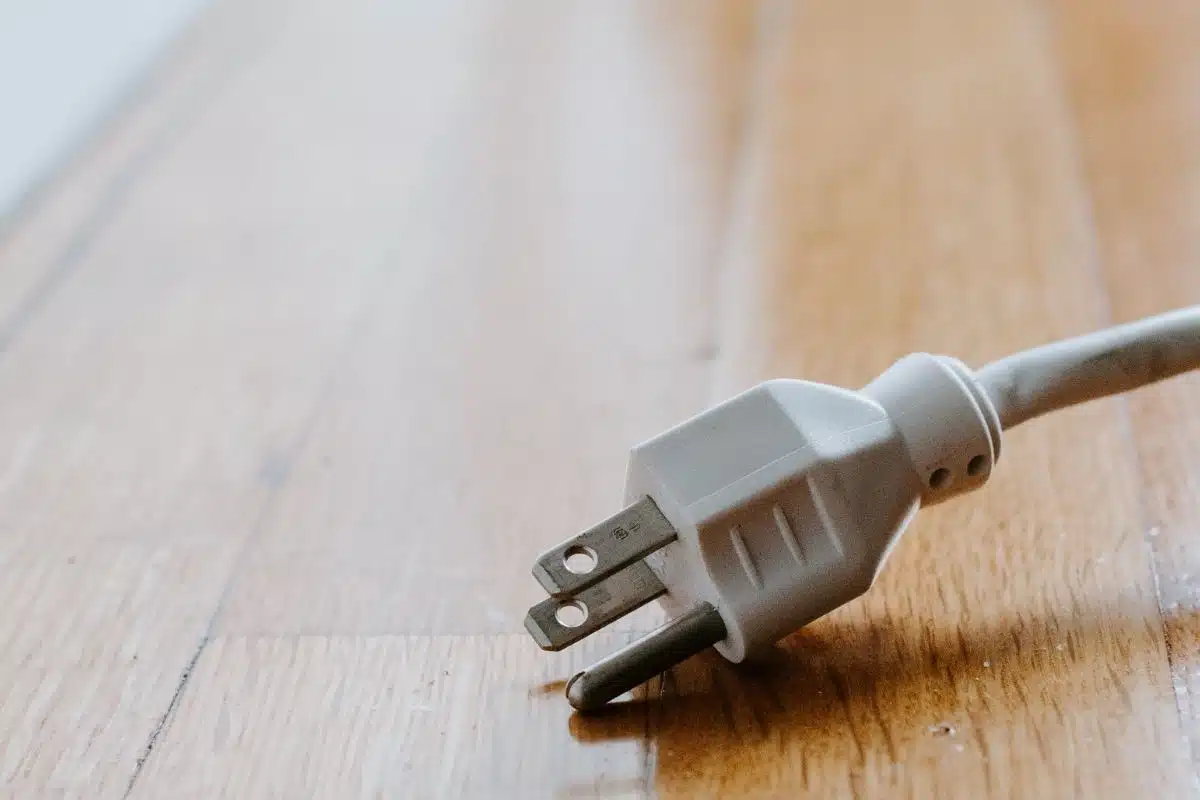
If your kitchen has an electrical outlet near the dishwasher space, you can install a power cord yourself.
Here’s a simple guide:
- Get a compatible power cord.
- Connect it to the dishwasher’s junction box.
- Then, plug it into the electrical outlet.
This allows your dishwasher to draw power and operate efficiently.
Are Power Cords Interchangeable?
When you think about power cords, you might wonder if they can be swapped out for each other.
It turns out that for many electronics, like computers and TVs, you can use the same power cords in many cases.
- Check the fit: The power cord you want to use as a replacement should have a similar connector shape to your device. This ensures it can actually plug into the device.
- Consider length: Make sure the power cord is long enough to reach your outlet without being too long and creating clutter or hazards.
Durability and Quality:
- Always opt for high-quality power cords for safety and long-lasting use.
- Avoid cheaper alternatives which may pose risks.
However, when it comes to dishwasher power cords, the situation is different.
These cords need to match a specific 110-volt 3-pin plug receptacle, and because of this requirement, they are generally not interchangeable with other appliance cords.
So, although the idea of a universal dishwasher power cord might seem convenient, it’s not the case in practice due to these specific electrical needs.
Electromagnetic Interference:
- Avoid folding power cords to reduce the risk of electromagnetic interference, which can affect your appliance’s performance.
You can use the same power cords for some devices if you’re careful. But for things like dishwashers, always use the cord made for that model to keep it safe and working right.
Can I Re-use Dishwasher Power Cord?
When it comes to re-using a power cord from an old dishwasher, you certainly can, but only if it’s in good shape.
Before you make the reuse decision, check the cord thoroughly. It should meet current safety standards and be free of any physical defects.
To reinstall the power cord, first, detach it from the junction box. You can then choose to leave the cable clamp attached or remove it. If you opt to disconnect the cord, you can hook it up to a new dishwasher with ease.
Testing Your Power Cord:
- Turn your multimeter to the resistance setting (usually denoted by Ω).
- Connect a multimeter probe to a prong on the power cord.
- Touch the other probe to the opposite connection on the switch.
If the multimeter beeps and shows “0” ohms, your circuit is fine. If not, the power cord might be broken and needs to be checked.
If you find a Fault:
- Cut the frayed ends of the cord.
- Use a knife to gently split the outer sheathing approximately 2 inches from the end.
- Carefully separate the black and white wires, ensuring not to cut the strands of copper inside.
- Twist and solder wires using a soldering device.
- Apply low heat, such as from a hairdryer, to assist with the solder cooling.
- Once cool, remove excess sheathing and securely wrap the connection with electrical tape.
By following these steps, you can give a new lease of life to a dishwasher power cord, ensuring continued performance without the need to purchase a new one.
Remember to handle wires with care and consult a professional if you are unfamiliar with electrical repairs.
Is It Better To Hardwire Or Plug-In A Dishwasher?
When you’re deciding how to install your dishwasher, there are two main options. You can choose to hardwire your dishwasher or you can opt for a plug-in connection. Each method has its benefits.
| Hardwiring a Dishwasher | Plugging in a Dishwasher |
|---|---|
| Secured to home circuit | Uses a power cord |
| More expensive | Generally less costly |
| Professional required | Easier to DIY |
| Neater look | Quick disconnect for safety |
Hardwiring your dishwasher means it’s wired directly into the electrical system of your home.
This can make it look more organized and less visible. But remember, this method might cost more and you need someone skilled to do the installment.
Plugging in your dishwasher with a power cord is usually a simpler choice. It’s often safe and lets you quickly unplug the appliance if it starts acting up.
A plug-in connection can be more budget-friendly and some people find it easier to do themselves.
If you go for hardwiring, make sure your installer knows what they’re doing. A bad job can be risky and damage your home.
But if you choose to plug in, and your dishwasher has a problem, you can just pull the plug. So, consider all this carefully before deciding which is right for you.
